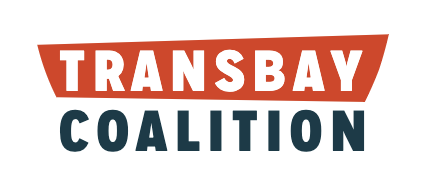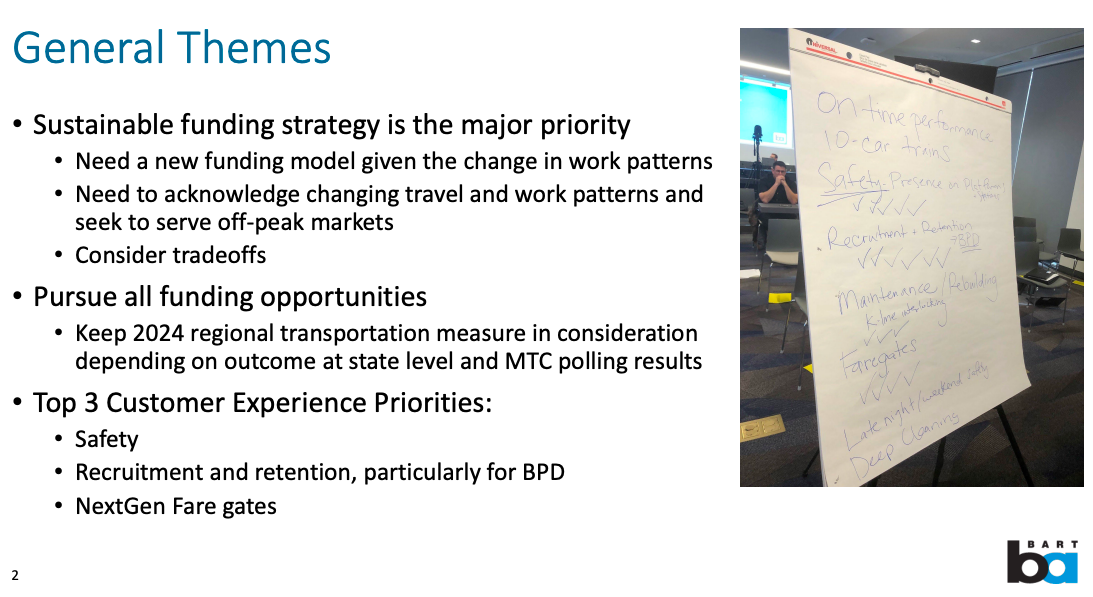In late February, the BART board held its annual board workshop. Major themes this year were financial stability and improving customer experience to regrow ridership.
The need for a sustainable funding strategy including new funding was front and center given the change in work patterns affecting BART revenue. BART’s ridership historically has closely tracked downtown San Francisco office occupancy which has been trailing the nation, and BART’s revenue has historically depended heavily on fares.
The board discussed the current multi-agency campaign to seek funding in the state budget cycle to bridge the gap for a few years, while laying the groundwork for a regional transportation funding measure.
Currently, the Metropolitan Transportation Commission is planning for an affordable housing bond measure in 2024 and for a regional transportation ballot measure in 2026, while seeking funding from the state to bridge the gap in the near term. MTC is currently polling regarding voter support to fund housing and transit, and results are expected to be public in April or May.
BART board members were cautiously supportive of this timeline but concerned about the risks, since the agency anticipates deficits hitting in 2025. Board members mentioned that Senator Wiener has a backup strategy to bring authorizing legislation for a Bay Area transportation measure in 2023 to go on the ballot as soon as 2024. The board wanted to keep the option for a 2024 measure on the table considering the outcome of the state funding initiative and the polling results.
BART is facing a major structural financial problem since its ridership has historically closely tracked downtown San Francisco office occupancy, and San Francisco has the lowest office occupancy in the country (see charts below).
To regrow transit ridership, the BART board focused on addressing the top concerns of riders affecting customer satisfaction, including cleanliness and personal safety.
The BART board generally supported maintaining overall service levels as a fundamental factor in retaining and regrowing ridership, while looking to potentially shift service hours to serve riders taking trips other than San Francisco commutes, including night and weekend travel, intra-East Bay service; events, family travel, and other non-commute travel needs.
Over time BART has strongly supported the region’s Transit Transformation Action Plan initiatives to help regrow ridership by providing more integrated, affordable service with strategies such as integrated fares, coordinated schedules, and wayfinding.
At the workshop, it was clear to the BART board that the pandemic had caused major changes, and the need is urgent to address rider concerns, transform service to address postpandemic travel needs, and seek new sources of revenue.

